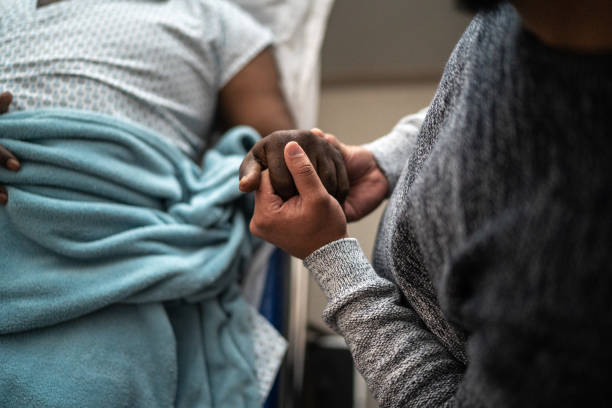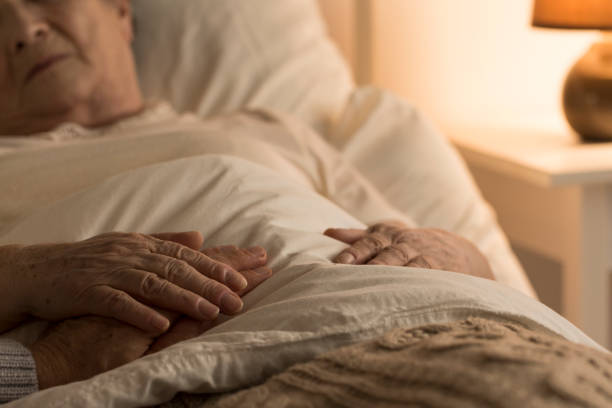The journey from hospital to home can be a challenging transition for seniors, especially after a prolonged hospitalization. The period immediately following discharge is crucial, as it can significantly impact their recovery and overall well-being. As caregivers, family members, or healthcare professionals, it’s essential to provide comprehensive support to ensure that seniors are safe, comfortable, and on the road to recovery.
Here’s how you can help seniors transition back home smoothly and successfully.
Contents
1. Understand the Discharge Plan
One of the most critical steps in facilitating a successful transition is understanding the discharge plan provided by the healthcare team. This document includes detailed instructions on medications, follow-up appointments, dietary restrictions, and physical activities. Make sure you:
- Speak with the healthcare provider to clarify any medical terms or procedures.
- Ask about potential signs of complications to watch for.
- Get instructions on wound care, if applicable, and inquire about any physical therapy requirements.
Taking the time to comprehend the discharge plan fully ensures that you’re prepared to support your loved one effectively.
2. Prepare the Home Environment
Returning home can be overwhelming for seniors, especially if their health condition has changed. Preparing the home environment for safety and comfort is essential to prevent accidents, like falls, that could lead to re-hospitalization. Here are some home modifications to consider:
- Remove tripping hazards like loose rugs, electrical cords, and clutter.
- Install grab bars in the bathroom near the toilet and shower.
- Ensure good lighting throughout the house, especially in hallways and staircases.
- Consider mobility aids such as a walker or cane if recommended by the doctor.
Creating a safe and accessible living space can help seniors regain their independence while minimizing the risk of accidents.
3. Coordinate In-Home Care Services

If the senior requires assistance with activities of daily living (ADLs), such as bathing, dressing, or meal preparation, consider arranging for in-home care services. A professional caregiver can provide the following:
- Personal care assistance.
- Medication management.
- Support with physical therapy exercises.
- Companionship to combat feelings of loneliness and isolation.
For seniors with complex medical needs, hiring a skilled nurse to visit regularly can ensure they receive the necessary medical care at home.
4. Prioritize Nutrition and Hydration
Good nutrition is vital for recovery, especially for seniors who may have experienced weight loss or muscle weakness during their hospital stay. A well-balanced diet can accelerate healing, boost energy levels, and strengthen the immune system. Here’s how to help:
- Plan nutritious meals that include plenty of fruits, vegetables, lean proteins, and whole grains.
- Encourage hydration by offering water, herbal teas, and other non-caffeinated drinks.
- If the senior has dietary restrictions, consult a nutritionist to create a suitable meal plan.
You may also consider preparing freezer meals or using meal delivery services to ensure they have access to healthy food without the stress of cooking.
5. Manage Medications Properly
Medication management is often a critical aspect of post-hospital care, as seniors may be prescribed new medications or have changes to their existing prescriptions. It’s important to:
- Create a medication schedule to keep track of dosages and times.
- Use pill organizers or automated dispensers to prevent missed doses.
- Watch for potential side effects or interactions with other medications.
If the senior struggles with managing their medications, a visiting nurse or caregiver can assist in ensuring adherence to the prescribed regimen.
6. Monitor Mental and Emotional Health
Hospitalization can be an emotionally draining experience, especially for seniors. It’s not uncommon for them to feel anxious, depressed, or even fearful about their recovery. Pay attention to their mental health by:
- Scheduling regular visits from family and friends to provide emotional support.
- Encouraging participation in social activities or hobbies they enjoy.
- Consult a therapist or counselor if they show signs of depression or anxiety.
Staying connected and engaged with their social network can make a significant difference in their emotional well-being during the recovery period.
7. Encourage Physical Activity and Rehabilitation
Physical activity is essential for regaining strength and mobility, but it should be approached cautiously. Depending on the senior’s condition, you may need to:
- Encourage light exercises approved by their doctor, such as walking, stretching, or chair exercises.
- Arrange for physical therapy sessions if prescribed, either at home or in a nearby clinic.
- Promote gentle movement throughout the day to prevent stiffness and improve circulation.
Helping seniors stay active can speed up their recovery process and reduce the risk of complications like blood clots or muscle atrophy.
8. Schedule Follow-Up Appointments
Attending follow-up appointments is crucial for monitoring the senior’s progress and addressing any concerns early on. Make sure to:
- Schedule all follow-up visits with doctors, specialists, or therapists in advance.
- Prepare a list of questions or concerns to discuss during appointments.
- Arrange transportation if the seniors cannot drive themselves.
These check-ups can help prevent complications and ensure that the senior is on the right track toward a full recovery.
9. Create a Support Network
Transitioning home after a hospital stay can be daunting, both for the seniors and their caregivers. Building a strong support network is essential for providing consistent care and preventing burnout. Consider:
- Reaching out to family members, neighbors, or community resources for assistance.
- Joining caregiver support groups to share experiences and gain advice.
- Utilizing respite care services if you need a break from caregiving duties.
By involving others in the caregiving process, you can reduce the stress and ensure that the senior receives comprehensive support.
Conclusion
Helping seniors transition back home after hospitalization requires careful planning, patience, and compassion. By addressing their medical, physical, and emotional needs, you can provide a safe and supportive environment that promotes healing and well-being. Remember, the goal is not only to help them recover physically but also to improve their quality of life and independence as they adjust to being back home. With the right approach, you can make this transition a positive experience that contributes to their long-term health and happiness.

